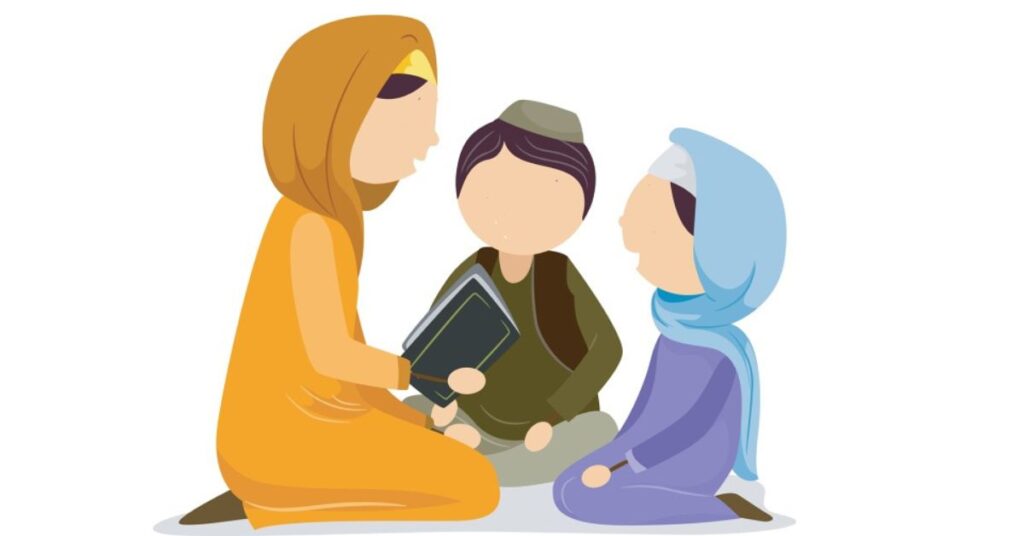Introducing children to Islam as a concept can be quite an exciting ride chock full of narratives that are always good for campfire storytelling as well as crucial values for one’s lifetime. As a result of this article, parents and educators have been advised on how to make Islamic learning for kids fun. Well here are some ideas on how to make learning more artistic and fun for your children to learn about Islam.
Why is Islamic Learning Important for Kids?
For children, Islamic learning is very important because it makes them discover who they are and what they stand for. Once children are taught of their faith at tender ages they end up embracing the responsibility of belonging to that faith. But not only does it show them about the fundamentals of Islam, but also gives them values, which are honesty, respect, and kindness.
The Benefits of Early Islamic Education
- Building a Strong Foundation: Early education in Islam lays the groundwork for a strong moral compass.
- Cultural Awareness: Understanding their faith helps children appreciate their heritage and cultural background.
- Emotional Well-Being: Learning about faith and spirituality can improve children’s emotional health by providing comfort and guidance.
Fun Ways to Teach Islamic Learning
1. Storytelling
Kids love stories! Using stories from the Quran or Hadith is a wonderful way to engage them in Islamic learning. You can turn famous tales, such as the story of Prophet Noah (Nuh) or Prophet Muhammad’s (PBUH) early life, into captivating narratives that spark their imagination.
Resource for Storytelling:
- Quran Stories for Kids is a great site with animated stories that can capture a child’s attention.
2. Interactive Learning
Interactive learning is one of the best ways to make Islamic learning enjoyable. Use apps and online games that focus on Islamic teachings. These tools help children learn in a way that’s both fun and educational.
Recommended Apps:
- Quran Explorer: This app helps children learn Quranic verses with translations and audio. It’s perfect for auditory learners.
- Islamic Quiz: A fun quiz app that tests kids on their Islamic knowledge while they compete with friends.
3. Arts and Crafts
Get creative! Incorporating arts and crafts into Islamic learning can help kids connect with their faith. You can create colorful decorations with Islamic motifs, like the crescent moon and stars, or help them write out Islamic phrases in beautiful calligraphy.
Craft Ideas:
- Create a DIY Prayer Mat: Use colorful fabrics to design a small prayer mat together.
- Islamic Calligraphy: Teach them the basics of Arabic calligraphy to write simple phrases like “Bismillah” or “Allahu Akbar”.
4. Music and Songs
Islamic songs and nasheeds can be a joyful way for kids to learn. Melodies make information stick, and kids often remember lyrics better than plain text. Choose songs that teach Islamic values or narrate stories of the prophets.
Where to Find Islamic Songs:
- Websites like Islamic Music for Kids have a great selection of songs that are both educational and fun.
5. Outdoor Activities
Combine learning with outdoor fun! Organizing a picnic with friends or family where you discuss Islamic teachings can make the lessons memorable. You can play games that teach teamwork and respect, values emphasized in Islam.
6. Family Discussions
Make it a habit to have family discussions about Islamic teachings. Ask your kids questions about their day and how they applied Islamic values. This practice not only reinforces learning but also fosters open communication.
FAQs about Islamic Learning for Kids
Q1: What is the best age to start Islamic learning for kids?
A1: It’s best to start as early as possible. Children can begin to learn the basics of Islam as soon as they can understand simple concepts, usually around age 3-5.
Q2: How can I make Islamic learning enjoyable for my child?
A2: Use engaging methods like storytelling, arts and crafts, music, and interactive games. The key is to make learning fun and relatable.
Q3: Are there online resources for Islamic education?
A3: Yes! Websites like Course Quran offer various online classes tailored for kids. You can also explore interactive apps for learning.
Q4: How can I teach my child about the Quran?
A4: Start with simple translations of Quranic verses and stories. Reading together and discussing the meanings can help them understand and appreciate the Quran better.
Conclusion
Education for Islamic learning for kids does not have to be problematic or uninteresting. In a creative and fun way, children can be taught values and principles relating to their faith, it should not be a tiresome job. This simply means that the Islamic values need not be imposed on children in a way that they will be forced to read Bibles for children; but there are many approaches that could be used to inculcate the Islamic values in children: Counselling, Story telling for kids, Games, Art and etc,-Muslim family discussion etc. The goal is to have a welcoming atmosphere where kids can grow into Christians, and enjoy learning about God.
By using those methods you’re not only educating them about Islam, but are helping them develop love for learning for the rest of their lives. So here we go, welcoming to this beautiful journey of Islamic education!







